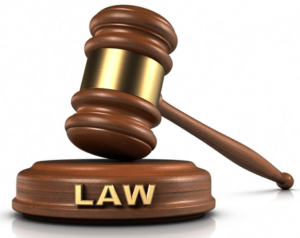Stakeholders review Ghana Broadcasting Bill
 As at June, Ghana has a total of 58 television operators authorised by the National Communications Authority (NCA) to broadcast television services.
As at June, Ghana has a total of 58 television operators authorised by the National Communications Authority (NCA) to broadcast television services.
The NCA has also given authorisation to 390 FM stations across the country of which 37 FM stations are state-owned, 273 are private commercial radio stations, 63 are community radio stations and 17 are campus radio stations.
All these broadcasting stations have come into being within the last two decades as the country undergoes radical transformation, which also helps in the promotion and deepening of democracy and citizen participation in governance and development.
“Moving on today’s liberalised environment, it is necessary to put in place a legal and regulatory framework for broadcasting and for the mass media in general, which is premised on the guarantee of the right to freedom of speech and expression, press freedom and the right to information,” Dr Edward Omane Boamah, Minister of Communications said at a stakeholders forum on the Broadcasting Bill in Accra on Wednesday.
He explained that currently, existing legislation framework does not fully address the requirements for sustainable broadcasting in a technological environment and it has become important to have a broadcasting law to address the legal and regulatory challenges that would promote social, political, economic, educational, developmental and cultural life of Ghanaians.
Dr Omane Boamah said the Ministry therefore decided to organise the forum to bring all stakeholders together to further discuss the draft Broadcasting Bill to clarify some issues raised after the Bill was earlier submitted to the Attorney General’s Department for advice.
The draft Bill provides a legal and regulatory framework that ensures that persons entrusted with a scare and critical public resource like the radio spectrum, operated in a manner that safeguards public order, public morality, national security and generally uses the resources in the best public interest.
The Minister said after the Attorney-General went through the draft Bill, issues raised for clarifications and which needed to be discussed at the forum, included the Constitutionality of the Bill, the Relationship between the NCA and the National Media Commission (NMC), Validity period for the Broadcasting authorisation, Provision of Content Regulations as well as Television Receiving Set Licence Fee.
Other issues also raised were, Comprehensive review of Public Service Broadcaster, Renewal of Broadcasting Authorisation, Emergency Powers of Governments and the Provisions on Content Regulation.
He expressed the hope that participants would do careful job in addressing all issues raised as well as consider other issues like digital migration to ensure that the Broadcasting law is finally rounded up, to be sent to Cabinet and to Parliament for its passage.
Mr Kwasi Agyemang, President of Ghana Independent Broadcasters Association said the issue of ownership of broadcasting services as well as the re-classification of radio stations and the digital migration ownership policy must all be addressed and factored in the draft bill.
Major Albert Don-Chebe, Director-General of Ghana Broadcasting Corporation, said the Corporation is eager to see the realisation of the Bill into Law so that it would help impact positively on broadcasting in the country.
Mr Kofi Larweh, Council member of Ghana Community Radio Network, said it was happy that the forum would help address the issues of regulations thoroughly.
Mr Kabral Blay-Amihere, Chairman of NMC said “it’s been a long awaited document, the process started about 10 years ago but hopefully before the 2016 elections, we shall have the Broadcasting law”.
Mr George Sarpong, Executive Secretary of NMC led the discussions which basically commented extensively on local content in broadcasting, with participants emphasising on careful considerations of local contents programming both on television and on radio.
Source: GNA
